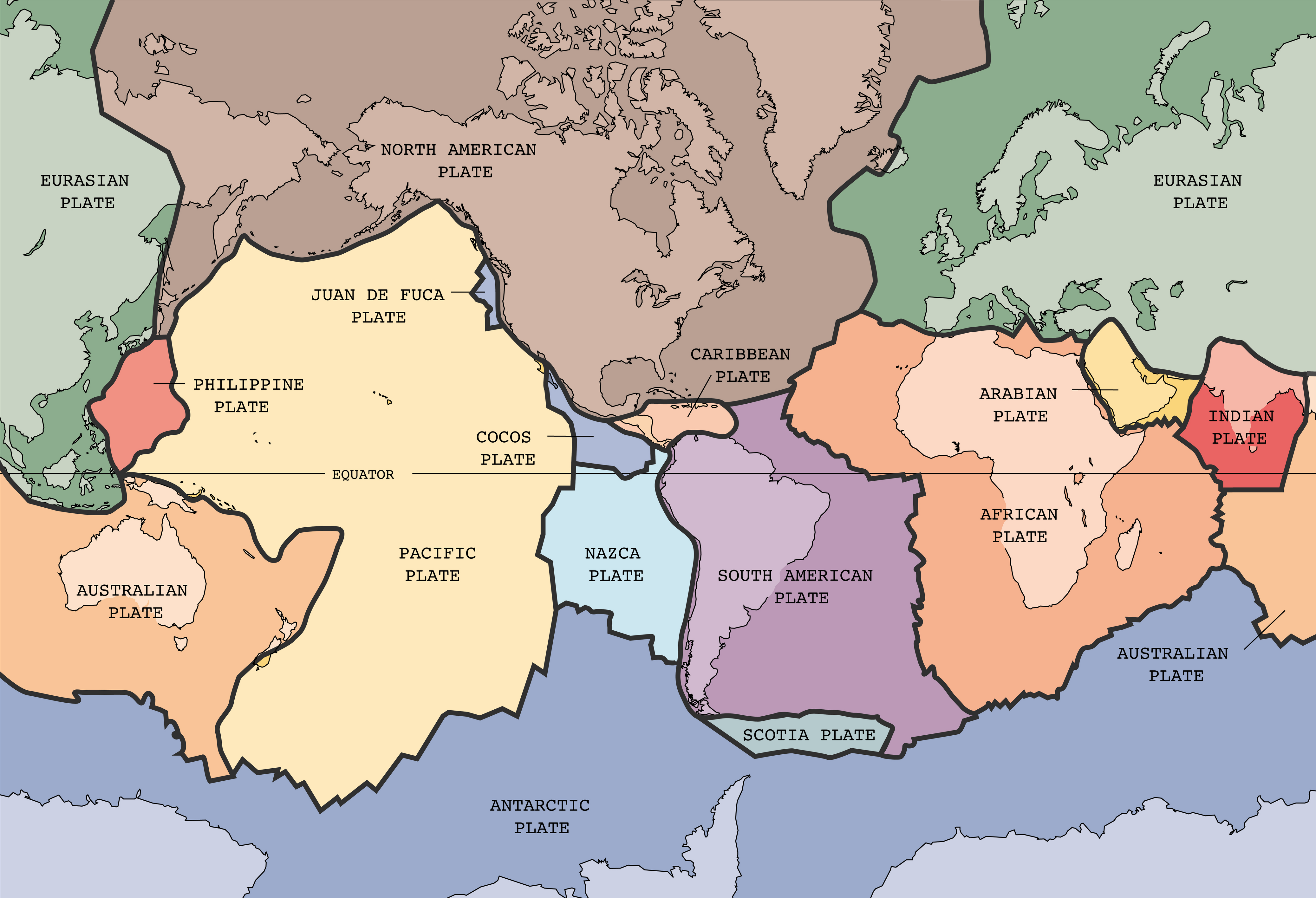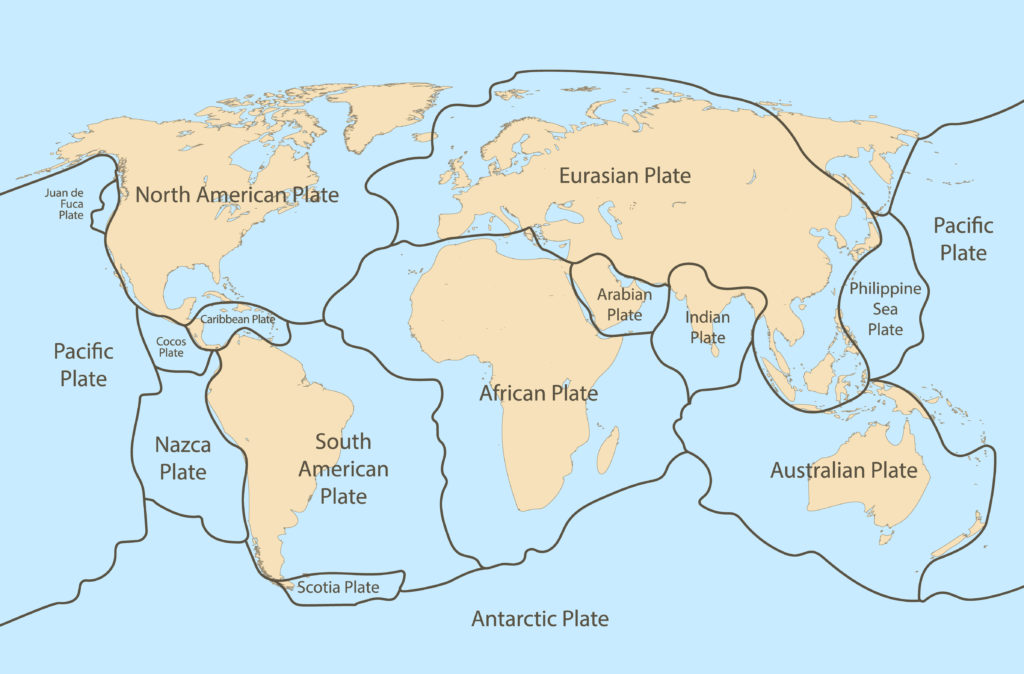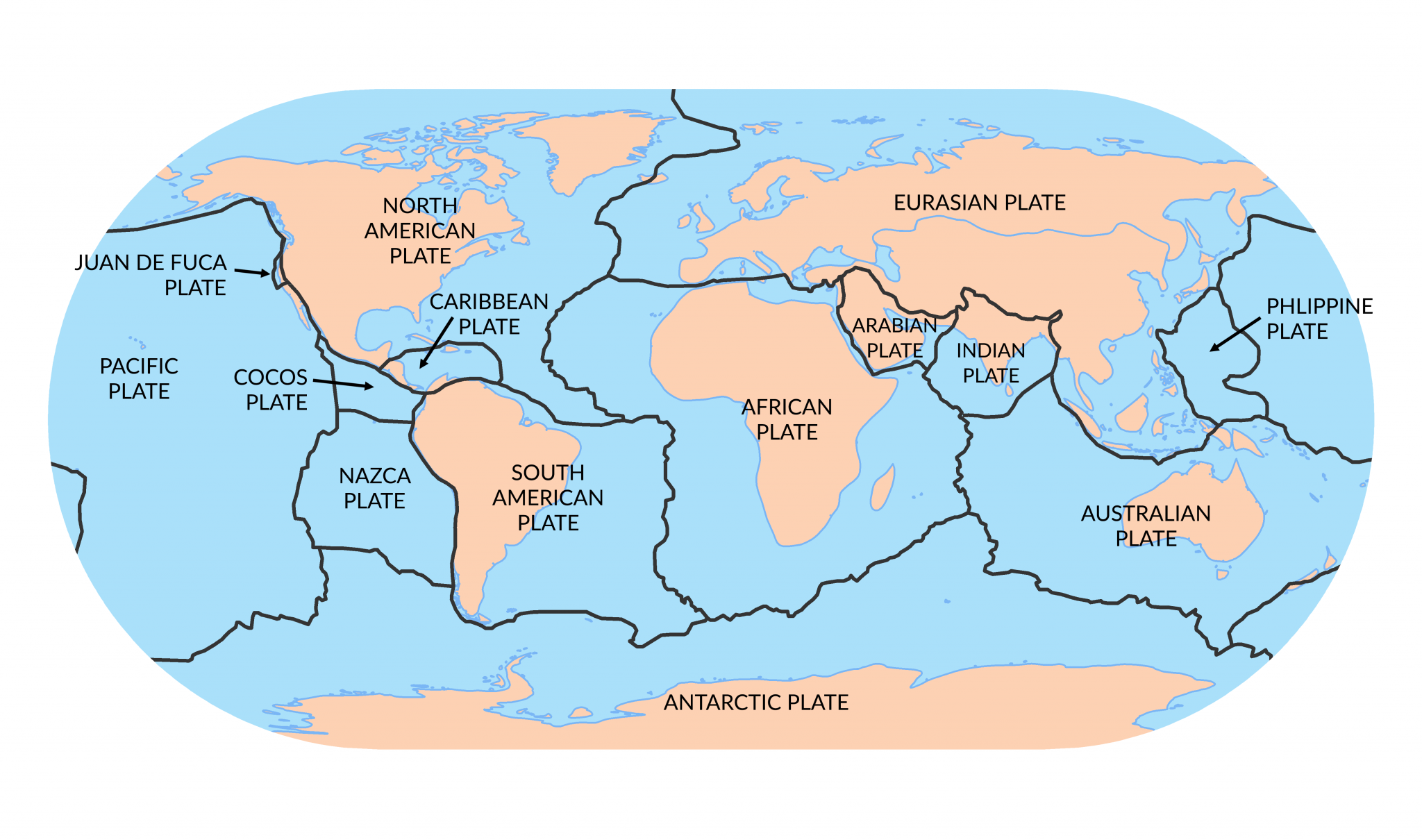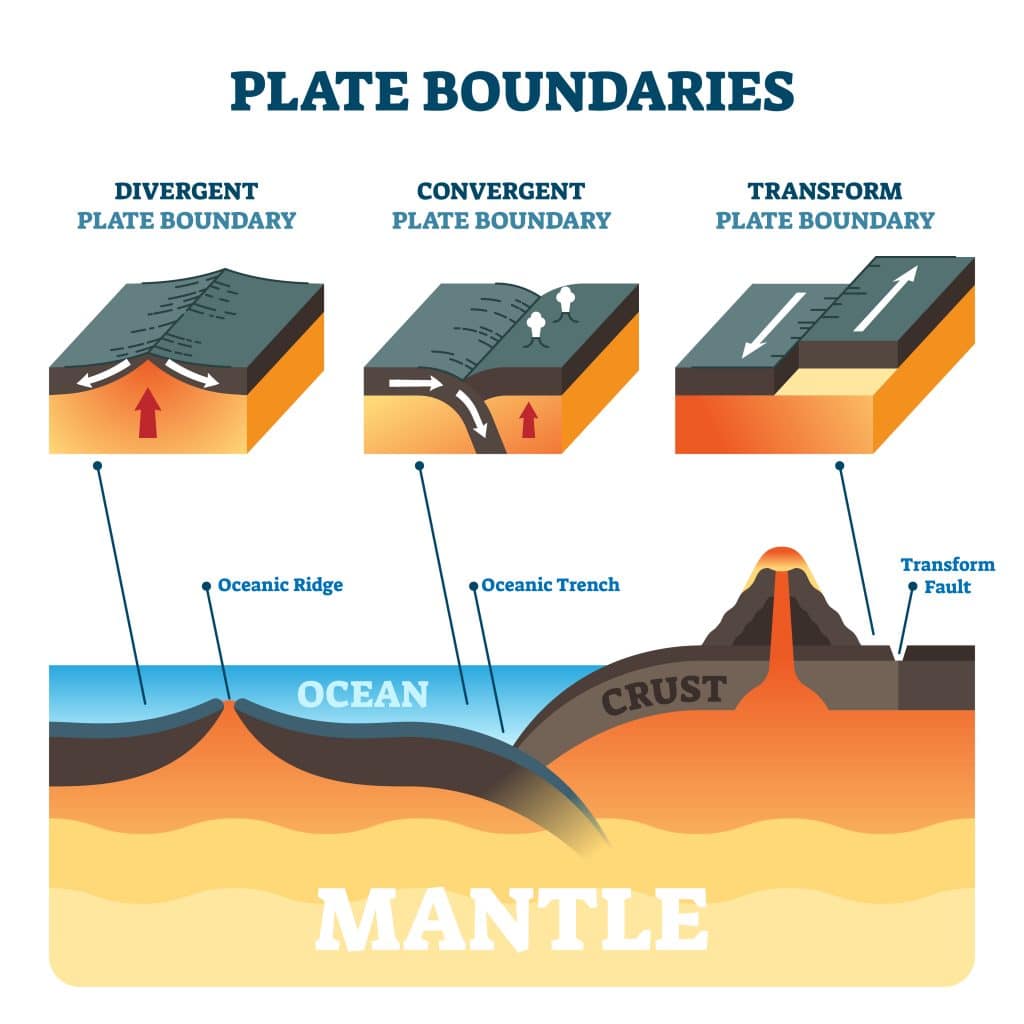Tectonic Plates Drawing
Tectonic Plates Drawing - Web since the 1970s, the arctic has warmed at least three times faster than anywhere else on earth, transforming its waters and ecosystems, the scientists said. This occurs above rising convection currents. Teacher presents overview of wegener’s theory of plate tectonics. But every plate moves distinctly and at different speeds. (volcanoes result from plate tectonics. Web complete lesson plan overview: Create your model by squirting a layer of magma into the bottom of the pan or tub. Web plate tectonics is the theory that earth’s outer shell is divided into several plates that glide over the mantle, the rocky inner layer above the core. Conservative (transform) plate boundaries slide across from each other. The shaving cream is magma and the cards and mesh screen are earth's plates. And, how movements of these plates produce earthquakes, volcanoes, ocean trenches, mountain ranges, and more. Geological survey map of tectonic plates show 21 of the major plates, as well as their movements and boundaries. Web plate tectonics is a theory about how earth's lithosphere is divided into a series of rigid plates; Web tectonic plates are composed of the oceanic. Create your model by squirting a layer of magma into the bottom of the pan or tub. Draw students' attention to the map below and ask the following questions: Identify types of plate boundaries and compare their characteristic earthquake and volcanic activities. Web you will also have to know what shreds of evidence support this theory. Two of the places. This strong outer layer is called the lithosphere. Teacher presents overview of wegener’s theory of plate tectonics. Web here’s a short description of the 3 types of plate tectonics: Divergent plate boundaries are locations where plates are moving away from one another. Convergent plates push boundaries together. Assess the basic lines of evidence supporting plate tectonics. Along convergent plate boundaries, the process of subduction carries the edge of one plate down under the. Divergent, convergent, and transform plate boundaries. Web you will also have to know what shreds of evidence support this theory. Discover how to create new mountains, volcanoes, or oceans! Assess the basic lines of evidence supporting plate tectonics. (volcanoes result from plate tectonics. A plate boundary is where two tectonic plates meet. Web the tectonic plates of our world. Convergent plates push boundaries together. Web the goals of this chapter are to: Convergent plates push boundaries together. The plate collisions that occur in these areas can produce earthquakes, volcanic activity, and crustal deformation. Web here’s a short description of the 3 types of plate tectonics: Convergent plate boundaries are locations where lithospheric plates are moving towards one another. Conservative (transform) plate boundaries slide across from each other. Draw students' attention to the map below and ask the following questions: Along convergent plate boundaries, the process of subduction carries the edge of one plate down under the. Web complete lesson plan overview: The plates act like hard and rigid shells compared to earth’s mantle. The shaving cream is magma and the cards and mesh screen are earth's plates. Shaving cream can, tub, cards, spoon, mesh screen, and towels. This strong outer layer is called the lithosphere. Convergent (colliding) boundaries are shown as a black line with teeth, divergent (spreading) boundaries as solid red lines, and transform (sliding alongside) boundaries as solid black lines. But. Web plate tectonics is the theory that earth’s outer shell is divided into several plates that glide over the mantle, the rocky inner layer above the core. Create your model by squirting a layer of magma into the bottom of the pan or tub. Web there are three kinds of plate tectonic boundaries: Web since the 1970s, the arctic has. Create your model by squirting a layer of magma into the bottom of the pan or tub. Web updated on january 30, 2020 the 2006 u.s. Web complete lesson plan overview: The map at the top of this page shows the geographic location and extent of 15 major lithospheric plates. This image shows the three main types of plate boundaries: Convergent (colliding) boundaries are shown as a black line with teeth, divergent (spreading) boundaries as solid red lines, and transform (sliding alongside) boundaries as solid black lines. Web complete lesson plan overview: Draw students' attention to the map below and ask the following questions: Students cut and color pieces of the continents according to fossil evidence. The map at the top of this page shows the geographic location and extent of 15 major lithospheric plates. This strong outer layer is called the lithosphere. Create your model by squirting a layer of magma into the bottom of the pan or tub. Along convergent plate boundaries, the process of subduction carries the edge of one plate down under the. Divergent plate boundaries are locations where plates are moving away from one another. (volcanoes result from plate tectonics. Web there are three kinds of plate tectonic boundaries: Web updated on january 30, 2020 the 2006 u.s. Two of the places that volcanoes occur are where plates collide and where plates move apart.) evaluate. Teacher presents overview of wegener’s theory of plate tectonics. Some of these changes promote more co 2. Image courtesy of the u.s.
Tectonic plate Royalty Free Vector Image VectorStock

2 Schematic representation of the three types of plate boundaries
:max_bytes(150000):strip_icc()/tectonic-plates--812085686-6fa6768e183f48089901c347962241ff.jpg)
A Map of Tectonic Plates and Their Boundaries

Earthguide SDUSD
Plate Tectonics Illustrations, RoyaltyFree Vector Graphics & Clip Art

Orange Peel Plate Tectonics Geology for Kids

Image result for tectonic plate movement Plate boundaries, Plate

Plate Tectonic Types Divergent, Convergent and Transform Plates

Section 4 The Theory of Plate Tectonics Nitty Gritty Science

Using Tectonic Plates to Draw Terrain Worldbuilding
The Plates Act Like Hard And Rigid Shells Compared To Earth’s Mantle.
But Every Plate Moves Distinctly And At Different Speeds.
These Slabs Are Called Tectonic Plates And Fit Together Like Pieces To A Puzzle.
Student Groups Arrange The Pieces Using Key To Wegener’s Evident To Support Their Arrangement And Present And Defend Their Reconstruction.
Related Post:
